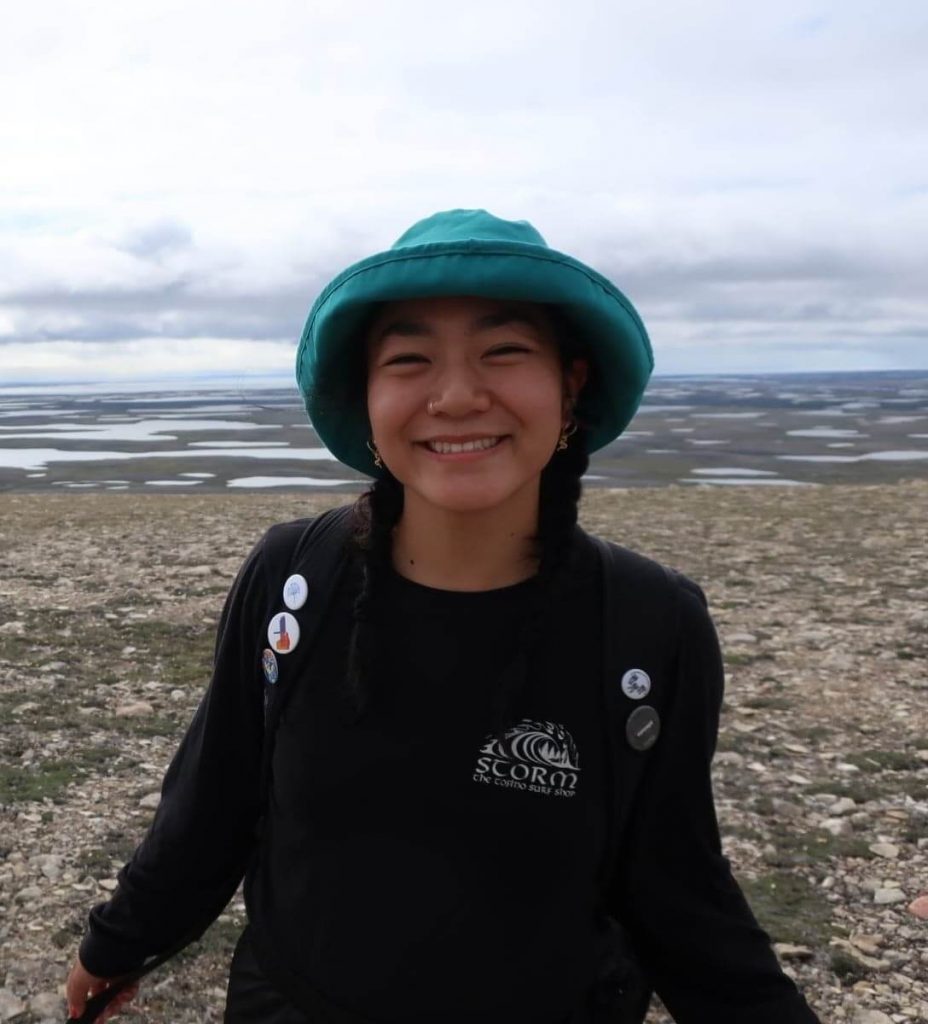
Hello! I’m Jessica (she/her) and I’m from the traditional lands of the Treaty 7 region, which includes the Blackfoot Confederacy, the Tsuut’ina First Nation, and the Stoney Nakoda, as well as the Métis Nation of Alberta, Region III, now also known as the City of Calgary.
I moved here in 2015 and got my BSc in Honours Biology with a minor in Gender, Race, Sexuality and Social Justice from UBC in 2020. Recently, I’ve rolled up from a MSc and am now a PhD Candidate in the UBC Department of Zoology, where I’m co-supervised by the Milsom Lab and the Marshall Lab. My research focuses on how development and environmental factors like seasonality, temperature, and low oxygen availability affect metabolism and thermogenic responses in small mammals.
I’ve TA’ed BIOL 112 (Biology of the Cell), BIOL 205 (Comparative Invertebrate Zoology), and BIOL 204 (Vertebrate Structure and Function). I’ve also had the opportunity to guest lecture in BIOL 370 (Principles of Muscle Physiology and Energetics).
What do you most enjoy about being a TA?
My favourite thing about being a TA is working with the students! I really appreciate how much more effective active learning is, so I always prefer having a conversation where we’re both thinking about the material instead of just reading off an answer key. Discussions where we’re problem solving together are super rewarding, especially when we eventually get to that “ah-ha!” moment where the concepts click. It’s super cool for me to see students get excited about subjects I’m excited about too, and the different perspectives are great – every semester I always get a good handful of questions I’ve never considered before that could even be cool research projects for students to pursue if they wanted to.
What has being a TA brought to your graduate studies experience?
The way I learn best is by teaching. My TAing experience has been centered around more introductory-level courses, so being able to go back to basics with comparative vertebrate and invertebrate biology courses has really improved my foundational knowledge, which is always useful. I’m always learning new things about the subjects because the students come up with really great questions, many of which I’ve never considered before! Being able to interact with so many students has also opened my eyes to different teaching styles, which is really valuable. This has been useful for other mentoring opportunities I’ve had in and out of the lab.
What is a memorable anecdote from your own undergraduate experience?
I think a lot of my teaching goals are equally shaped by outstandingly good and bad experiences I’ve had as an undergraduate. For example, I’ve had TAs berate me for making mistakes and talk down to me, which isn’t fun. Obviously, nobody’s perfect and everyone gets stressed, but those experiences still stuck with me and scared me away from asking questions and learning. What I mostly take away from them is the importance of remembering that everyone is human and you don’t always know what people are dealing with in their lives, so give them some grace. On the flip side, I’ve had TAs and professors who were very inclusive and encouraging – they were genuine, engaged, and never made anyone feel bad for asking any questions. They made my courses and materials accessible, and I really hope to do the same for my students.
What is your teaching philosophy?
I always aim to prioritize the autonomy of students and respect their agency. What I really value about TAing undergraduates is that you get to treat everybody like an adult who is capable of making their own informed decisions. Of course, you want to give helpful guidance, but it’s not a babysitting job – everyone gets a lot more out of it if we’re working together.
What do you like to do in your spare time?
The most common piece of advice I got when I was thinking about doing a PhD was to protect your own spare time, and it’s something I really value. I try to take evenings and weekends off, which definitely took some getting used to coming from an impossibly busy and overcommitted undergraduate experience (which is unfortunately too common). I typically go to a dance class at least once a week, and I also love hanging out and making meals with my friends. I also love turning my brain off and indulging in trashy television – some of my favourites are Naked and Afraid XL and Ink Master.
What are your plans following graduation?
Ultimately, I’d really love to get a lecturing position at a smaller university or college, but before that I’d like to just take a break. I graduated with my bachelor’s degree during the beginning of the pandemic and went straight into my masters program, largely because the idea of doing a gap year in lockdown was not appealing to me at all. My timeline is to finish my PhD before I’m 30, get an International Experience visa and live somewhere else with my friend for a while. I’m not sure what we’ll do for work, but in our fantasy we have a nice apartment with great interior design and we are regulars at local farmers markets.